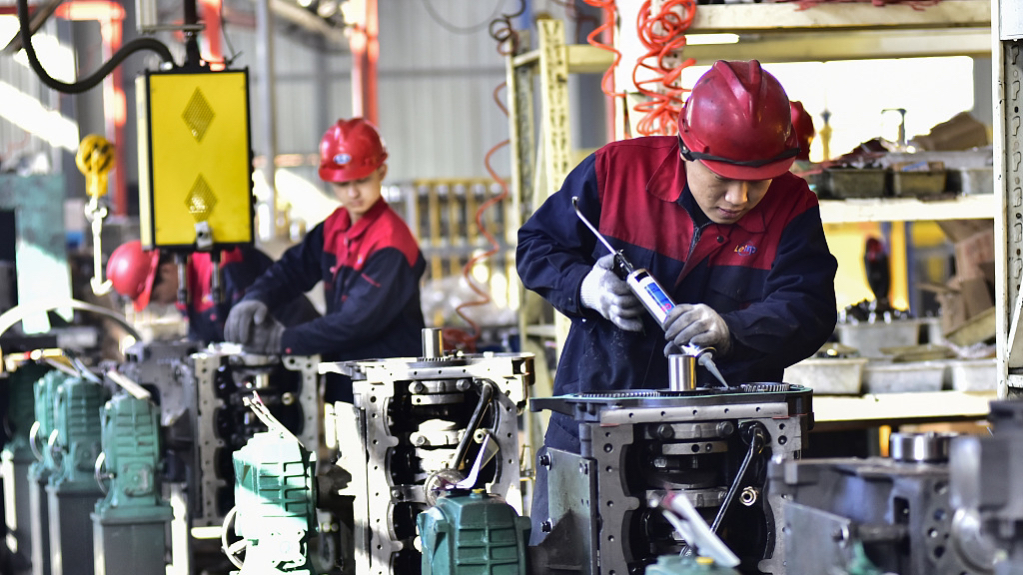The official purchasing managers’ index (PMI) for China’s manufacturing sector came in at 49.4 in November, down from last month’s 49.5, latest data from the National Bureau of Statistics (NBS) showed Thursday.
The PMI is a gauge of business sentiment among larger factory operators, with the 50-point mark being the line that separates expansion and contraction.
The slight decline in November can be attributed to insufficient market demand and the fact that some manufacturing industries have entered their off-peak season, according to NBS senior statistician Zhao Qinghe.
Nonetheless, the production index for high-tech and equipment manufacturing both came in higher than the 50-point threshold, pointing to a ramp-up in new growth drivers.
Meanwhile, PMI data for the non-manufacturing sector stood at 50.2, down 0.4 index point from the previous month, indicating a slowing yet continued expansion.
The services sector experienced a decline in activity in November, as a consumption surge during the holiday season weaned off, according to Zhao. He also noted that the construction sector has posted accelerated growth.
International organizations are optimistic about China’s development prospects. The Organization for Economic Co-operation and Development expects China’s real GDP to grow by 5.2 percent in 2023, upgrading its forecast of 5.1 percent in September, according to its latest economic outlook published on Wednesday.





